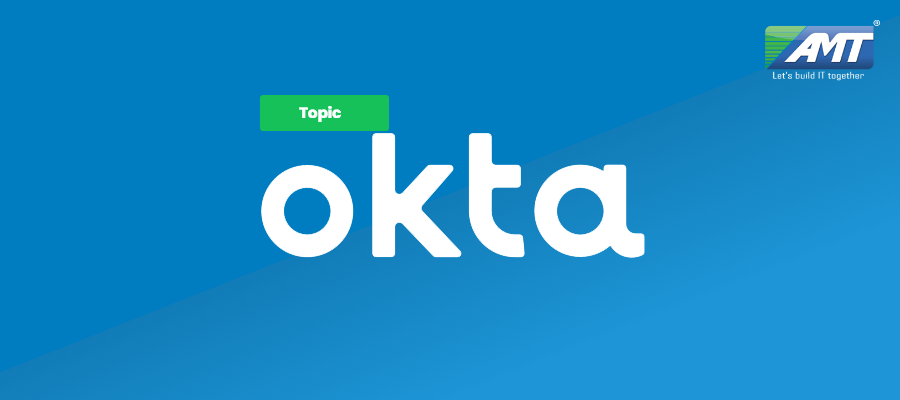Okta, Inc. (formerly Saasure Inc.) is an American identity and access management company based in San Francisco. It provides cloud software that helps companies manage and secure user authentication into applications, and for developers to build identity controls into applications, website web services and devices.
Identity management (IdM), also known as identity and access management (IAM or IdAM), is a framework of policies and technologies to ensure that the right users (that are part of the ecosystem connected to or within an enterprise) have the appropriate access to technology resources. IdM systems fall under the overarching umbrellas of IT security and data management. Identity and access management systems not only identify, authenticate, and control access for individuals who will be utilizing IT resources but also the hardware and applications employees need to access.
IdM addresses the need to ensure appropriate access to resources across increasingly heterogeneous technology environments and to meet increasingly rigorous compliance requirements.
The terms “identity management” (IdM) and “identity and access management” are used interchangeably in the area of identity access management.
Identity-management systems, products, applications and platforms manage identifying and ancillary data about entities that include individuals, computer-related hardware, and software applications.
IdM covers issues such as how users gain an identity, the roles, and sometimes the permissions that identity grants, the protection of that identity, and the technologies supporting that protection (e.g., network protocols, digital certificates, passwords, etc.).
In the real-world context of engineering online systems, identity management can involve five basic functions:
- The pure identity function: Creation, management and deletion of identities without regard to access or entitlements;
- The user access (log-on) function: For example: a smart card and its associated data used by a customer to log on to a service or services (a traditional view);
- The service function: A system that delivers personalized, role-based, online, on-demand, multimedia (content), presence-based services to users and their devices.
- Identity Federation: A system that relies on federated identity to authenticate a user without knowing their password.
- Audit function: Monitor bottlenecks, malfunctions and suspect behaviour.
In addition to creation, deletion, modification of user identity data either assisted or self-service, identity management controls ancillary entity data for use by applications, such as contact information or location.
- Authentication : Verification that an entity is who/what it claims to be using a password, biometrics such as a fingerprint, or distinctive behavior such as a gesture pattern on a touchscreen.
- Authorization : Managing authorization information that defines what operations an entity can perform in the context of a specific application. For example, one user might be authorized to enter a sales order, while a different user is authorized to approve the credit request for that order.
- Roles : Roles are groups of operations and/or other roles. Users are granted roles often related to a particular job or job function. Roles are granted authorizations, effectively authorizing all users which have been granted the role. For example, a user administrator role might be authorized to reset a user’s password, while a system administrator role might have the ability to assign a user to a specific server.
- Delegation : Delegation allows local administrators or supervisors to perform system modifications without a global administrator or for one user to allow another to perform actions on their behalf. For example, a user could delegate the right to manage office-related information.
- Interchange: The SAML protocol is a prominent means used to exchange identity information between two identity domains. OpenID Connect is another such protocol.
Okta sells 10 products, including Single Sign-On, Universal Directory, Advanced Server Access (formerly ScaleFT), API Access Management, Authentication, User Management, B2B Integration, Multi-factor Authentication, Lifecycle Management, and Access Gateway.
Okta sells six services, including a single sign-on service that allows users to log into a variety of systems using one centralized process. For example, the company claims the ability to log into Gmail, Workday, Salesforce and Slack with one login. It also offers API authentication services.
Okta’s services are built on top of the Amazon Web Services cloud.
Okta primarily targets enterprise businesses. Claimed customers as of 2020 include Zoominfo, JetBlue, Nordstrom, MGM Resorts International, and the U.S. Department of Justice.
Okta runs an annual “Oktane” user conference, which in 2018 featured former US President Barack Obama as a keynote speaker.
Okta was co-founded in 2009 by Todd McKinnon and Frederic Kerrest, who previously worked together at Salesforce.
In 2015, the company raised US$75 million in venture capital from Andreessen Horowitz, Greylock Partners, and Sequoia Capital, at a total initial valuation of US$1.2 billion.
In 2017, Okta’s initial public offering priced at $17.00 per share, trading up on its first day, to raise an additional US$187 million. At the time of its IPO, Sequoia Capital was the biggest shareholder, with a 21.2 percent stake.
In January 2019, Okta’s CEO announced that the company has over 100 million registered users.
In August 2020, Okta announced that it plans to let most of its employees work remotely on a permanent basis as a result of the COVID-19 pandemic.
In March 2021, Okta signed a definitive agreement to acquire Auth0 for $6.5 billion. In May 2021, Okta’s acquisition of Auth0 closed.
The above is a brief about Okta. Watch this space for more updates on the latest trends in Technology.
